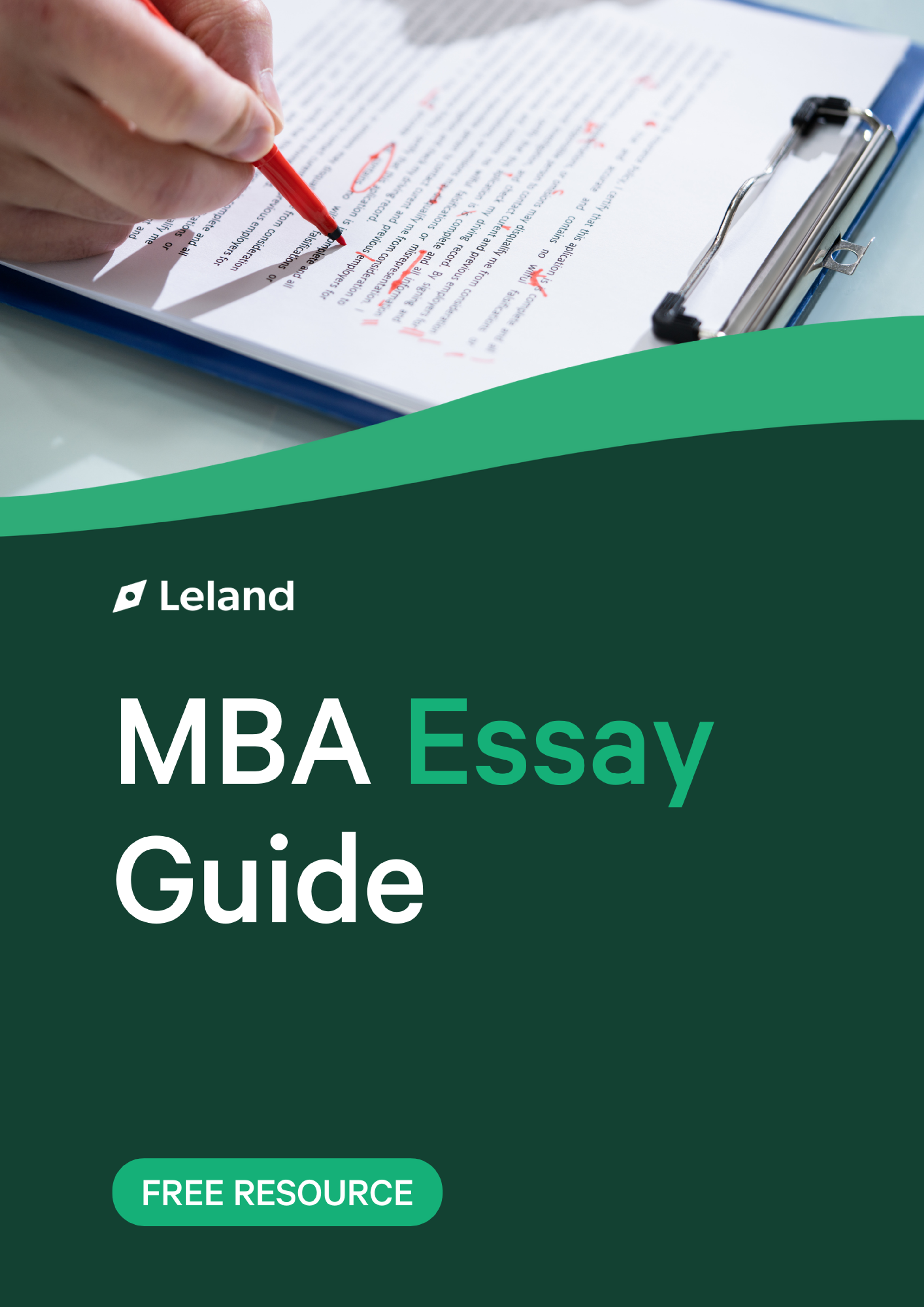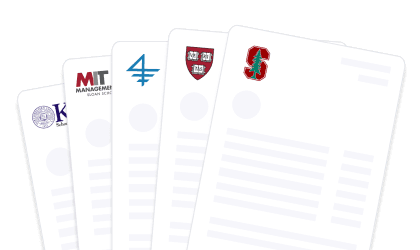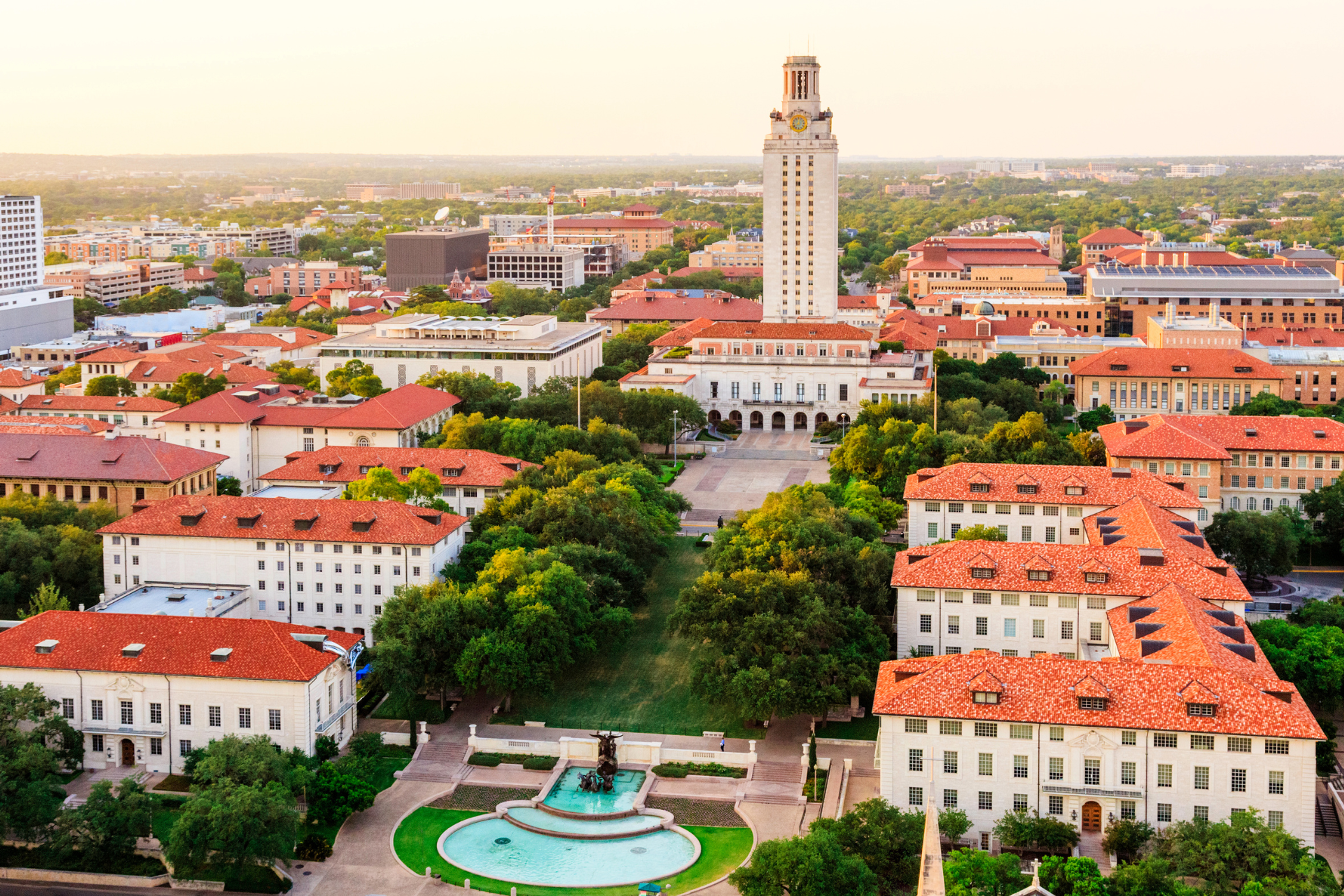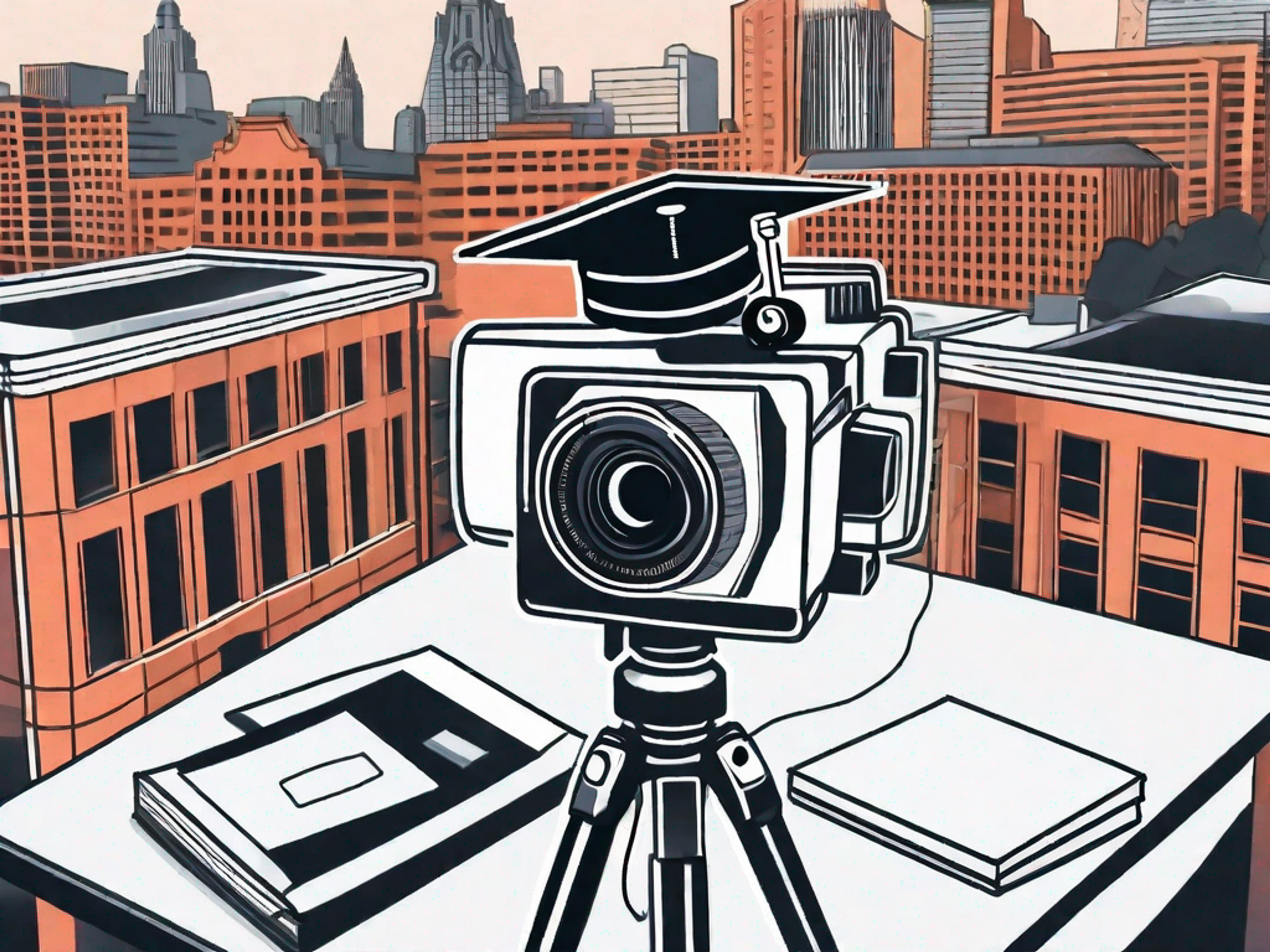Wharton MBA Essays: Prompts, Examples, and Expert Tips (2025)
Master your Wharton MBA essays with expert guidance, real Wharton MBA essay examples, and insider tips to craft standout, admission-ready responses.
By Timothy F.
Former Ad Comm | 200+ M7 Admits | Ranked top 4 firm on Poets & Quants 2025
Posted October 23, 2025

Join a free event
Learn from top coaches and industry experts in live, interactive sessions you can join for free.
Table of Contents
Writing your Wharton MBA essays can feel overwhelming. It is not because you don’t have valuable experiences to share, but because you only have a few hundred words to explain them, along with your goals, your values, and why you belong among the most selective business schools in the world.
As one of the M7 business schools, the Wharton School and its admissions committee want to understand who you are, where you’re going, and how you’ll shape the Wharton community along the way. Your essays are your best opportunity to show them that.
In this guide, you’ll find everything you need to write essays that stand out, including a breakdown of the 2025 Wharton MBA essays, strategic advice from former AdCom insiders, real examples, and the biggest mistakes to avoid.
Read: The Wharton School MBA: Acceptance Rate, Deadlines, Cost, Requirements, & Program Overview
What Are the Wharton MBA Essay Prompts (2025-26)?
The Wharton School requires two essays for the 2025-26 MBA application cycle:
Essay 1: Two short-form questions
"What is your immediate post-MBA professional goal? (50 words)"
"What are your career goals for the first three to five years after completing your MBA, and how will those build towards your long-term professional goals? (150 words)"
This replaces the previous 500‑word single‑essay format. The focus is now tightly on your career trajectory.
Essay 2: Long-form essay
"Taking into consideration your background – personal, professional, and/or academic – how do you plan to add meaningful value to the Wharton community? (350 words)"
This prompt has shifted slightly, from “make specific, meaningful contributions” to “add meaningful value,” and has been reduced from 400 to 350 words. Focus on impact, not just involvement.
Optional Essays
- Reapplicant Essay (250 words): Only required if reapplying. Reflect on growth since your last Wharton application.
- Additional Information (500 words): For any background context, gaps, inconsistencies, or circumstances you wish to explain.
Summary Table
| Essay | Word Limit | Notes |
|---|---|---|
| Goals (Part A) | 50 words | Post-MBA role |
| Goals (Part B) | 150 words | 3–5 year + long-term trajectory |
| Community Contribution | 350 words | Focus on adding value |
| Reapplicant (if applicable) | 250 words | Reflect & update |
| Additional Info | 500 words | Clarification or context |
What’s different this year?
Wharton has refined its essay structure to focus on clarity and impact. The Goals essay is now divided into two short questions (50 and 150 words), replacing the previous 500-word format. This change encourages applicants to express their short-term and long-term career goals more directly and concisely.
The Community essay has been shortened from 400 to 350 words and rephrased to emphasize how applicants will “add meaningful value” rather than simply “make contributions.” This signals a shift toward showcasing genuine impact, how your unique background, perspective, and experiences will enrich Wharton’s community.
Then the Reapplicant and Additional Information essays remain the same, providing space to explain growth since a prior application or to clarify any gaps or special circumstances.
These updates highlight Wharton’s focus on self-awareness, clarity, and community impact. Keep these three themes in mind as you plan, write, and refine your essays.

MBA Essay Guide
Download our free MBA essay guide for school-specific deep-dives, examples, insider tips, and common mistakes
How to Plan Your Essay Timeline
Strong essays take time. Many applicants wait until the last few weeks and end up rushing, which usually shows in the final draft. To avoid this, map out your writing process well in advance of the deadline.
Suggested Timeline:
| When | What to Do |
|---|---|
| 2–3 months before the deadline | Start brainstorming. Reflect on your career goals, past experiences, and potential contributions to Wharton. Collect notes and raw ideas without worrying about structure. |
| 6–8 weeks before the deadline | Write your first drafts. Focus on getting your ideas onto the page, even if they’re rough. Don’t edit heavily yet. |
| 3–4 weeks before the deadline | Revise for clarity and strategy. Refine your stories, align your goals with Wharton resources, and remove any fluff or repetition. |
| 1–2 weeks before the deadline | Finalize. Proofread carefully, check grammar and flow, and, if possible, get outside feedback from mentors or peers. |
This timeline helps you avoid last-minute stress and gives your essays the polish they need to stand out.
What Wharton Is Really Looking For in These Essays
Wharton’s essays are designed to reveal both your career clarity and your community mindset: two qualities the admissions team values deeply.
The first essay, now split into short-form responses, asks you to clearly articulate your career goals and how Wharton fits into that journey. It’s less about dreaming big and more about demonstrating thoughtful direction, ambition, and alignment with what Wharton offers.
The second essay shifts focus to how you’ll contribute to the Wharton community, not in vague terms, but through specific, meaningful value grounded in your personal, professional, or academic background.
Taken together, these prompts help the admissions team understand not just what you hope to gain but what you’re prepared to give, painting a holistic picture of your fit, impact, and readiness for the Wharton MBA experience.
Read: How to Write the Best MBA Essays – From an Admissions Consultant (With Examples)
Wharton MBA Essay Examples
Prompt 1: Career Goals (Post-MBA and Long-Term Vision)
What It’s Asking: Wharton wants to see that you have clear short- and long-term goals and that their MBA program is the right next step to help you reach them. The admissions committee is looking for direction, ambition, and a deep understanding of why Wharton specifically is the right place for you to grow.
How to Brainstorm:
- Define your goals: Be specific about your target industry and functional path, but remain flexible on exact roles. Move beyond prestige (e.g., McKinsey) to purpose (e.g., scaling healthtech access globally).
- Show self-awareness: Identify areas of weakness or skills you need to develop, may it be strategic thinking, global exposure, leadership, financial acumen, and explain why closing these gaps matters.
- Connect to Wharton: Choose 2–3 resources that fit your growth path (e.g., Mack Institute, Healthcare Management major, McNulty Leadership Program). Show how they complement your personal, professional, and academic background, and how they’ll shape your Wharton experience.
- Explain “Why Wharton”: Link your past, present, and long-term goals directly to Wharton’s coursework and extracurricular opportunities, including volunteer engagements. Show progression: where you are now, what comes next, and the bigger impact you want to make.
Sample Excerpt: After five years of building pricing models at a Fortune 500 company, I want to pivot into strategy consulting focused on sustainable growth in emerging markets. The Wharton MBA will help me deepen my global business acumen through courses like Global Strategic Management and the Global Immersion Program. I plan to join the Africa Business Club and Consulting Club to sharpen my leadership skills, expand my global network, and apply my learning through case competitions and experiential coursework.
Why It Works: It ties experience to future goals, addresses areas of weakness, and shows a compelling story backed by self-awareness. It also demonstrates a deep understanding of Wharton’s resources and how they will enhance the applicant’s Wharton experience.
Prompt 2: Contribution to the Wharton Community (350 words)
What It’s Asking: Student culture drives the MBA experience, but half the class turns over every year. Wharton needs students who will actively shape and sustain its community. This essay asks: “If we admit you, how will you make Wharton a better place?” They want to see what you bring, why it matters, and how it connects to your background and goals. While Essay 1 focuses on your career aspirations, Essay 2 highlights how your unique experiences will translate into meaningful contributions at Wharton.
How to Brainstorm:
- What unique perspectives, skills, or experiences do you bring? (Think professional and personal industries, leadership styles, cultural background, lived experiences, interests.)
- How have you contributed to communities, teams, or organizations before? (Use clear examples of leadership, mentorship, collaboration, or innovation.)
- Which aspects of the Wharton community resonate most with you? (Clubs, conferences, centers, affinity groups, learning teams, leadership ventures, culture.)
- Where will you engage most actively, and how will you leave Wharton stronger than you found it? (Launching initiatives, leading clubs, mentoring peers, building cross-community bridges.)
- What values or leadership traits do you hope to model at Wharton? (Consider the cultural impact you’ll leave behind.)
Expert Tip: Ground every point in credible signals about your strengths. Don’t just claim to be “collaborative.” Show when you’ve been collaborative in the past, then explain how you’ll apply it to enrich Wharton.
Sample Excerpt: "Growing up in a multigenerational immigrant household taught me the value of education and resilience. At Wharton, I plan to contribute to the First Gen/Low-Income Club by organizing mentorship programs that help students from similar backgrounds thrive. I also want to launch storytelling dinners, where students share their journeys to build deeper connection, inclusion, and a stronger Wharton experience for the community."
Why It Works: It is personal, specific, and clearly linked to Wharton. The essay connects lived experience with concrete contributions. It also demonstrates leadership potential and empathy, two qualities that the admissions committee values in applicants who will enrich the Wharton experience.
Common Mistakes Applicants Make (and How to Avoid Them)
1. Stating generic or unclear goals.
Wharton doesn’t expect you to have every career detail figured out, but they do expect clarity. Too many applicants submit vague goals like “I want to work in consulting” or “I want to lead in tech.” That’s simply not enough. Frame your goals in a way that is industry-specific, problem-driven, and purpose-oriented. Show the admissions committee that you’ve thought about how you’ll fit into the broader landscape and why your path matters.
2. Treating Wharton like every other M7.
Many applicants recycle essays from other schools, swapping in “Wharton” without demonstrating true knowledge of what makes Wharton distinctive. This makes your application feel generic. Show that you understand Wharton’s DNA: analytical rigor, global reach, cross-disciplinary flexibility, and a deeply collaborative student culture. Tie your growth to resources and opportunities that Wharton offers better than anywhere else.
3. Listing resources without connecting them.
It is common to see applicants name-drop a dozen courses, clubs, and centers. But if you don’t explain why those resources matter to you, it feels like you’re just copying the website. Select 2–3 resources that truly align with your gaps and goals. Weave them into your story so they clearly connect to your career path or your contribution to Wharton.
4. Focusing only on achievement, not growth.
Wharton values self-awareness and a growth mindset. Essays that only celebrate accomplishments, without showing reflection, vulnerability, or ambition to stretch further, come across as one-dimensional. Frame your past successes in terms of what you learned, how you grew, and what gaps you’re ready to tackle next. Show that you’re both accomplished and coachable.
5. Misinterpreting Essay 2 as "fun facts."
The community essay isn’t asking you to list clubs you’ll join or drop in random “fun facts.” Some applicants write vague promises about being collaborative or mention activities without showing how they’ll add value. Use Essay 2 to show how your background equips you to contribute to Wharton. Ground your answer in specific past experiences and connect them to the impact you’ll have, whether that’s mentoring peers, leading initiatives, or enriching a cultural or professional community.
6. Neglecting one of the core Essay 2 themes.
Wharton’s admissions team is intentional in asking how you’ll add value across academic, professional, and personal dimensions. Too many applicants focus on just one and ignore the others. Highlight contributions in all three areas. For example, show how you’ll contribute in class discussions (academic), clubs or ventures (professional), and affinity groups or cultural communities (personal). This shows thoughtfulness and a well-rounded commitment.
7. Playing it safe.
Especially in Essay 2, overly safe or generic answers can make an otherwise strong applicant fade into the background. Wharton rewards authenticity and thoughtful risk-taking. Choose a moment or perspective that reveals who you really are, how you faced tension, challenge, or growth. Essays that show emotional depth, intellectual stretch, or cultural perspective resonate far more than polished but forgettable narratives.
My Expert Tips
Show you want to get into Wharton, not just an MBA
Wharton isn’t looking for generic MBA applicants. They want people who will thrive in their ecosystem, where teamwork and collaboration drive everything. From your Learning Team to student-led conferences and funds, you’ll be expected to lead, collaborate, and challenge ideas. Make it clear that you understand this culture and are eager to contribute, not just participate.
Connect your story to Wharton’s structure
Wharton is rigorous. It blends quantitative analysis with real-world application, and they want candidates who are ready for both. If you’re discussing career goals, connect them to specific courses (e.g., Advanced Corporate Finance, Managing the Established Enterprise) or programs (Analytics at Wharton, Venture Lab, Global Immersion). The best essays sound like you’ve already walked the halls of Huntsman and know exactly how you’ll prioritize your time.
Contribution at Wharton isn’t optional; it’s cultural.
Contribution isn’t an add-on at Wharton. It is core to the experience. Whether leading a conference, mentoring peers, or joining clubs like Wharton Women in Business or the Africa Business Forum, the admissions committee wants to know how you’ll make Wharton stronger. Use your past experiences to show how you’ll add real value.
Own your gaps with honesty
If your profile has weaknesses (low GPA, test score, career gap, or reapplication), don’t ignore them. Use the optional essay to explain, show growth, and point to evidence of readiness, whether that’s stronger performance later, quantitative coursework, or professional success. Wharton values maturity and resilience; honesty here often strengthens your application.
Let your global and personal perspective shine.
Wharton is a global business school. If you’ve lived, worked, or led across cultures, bring that into your essays. If your perspective is shaped by being first-generation, from a nontraditional industry, or mission-driven work, highlight it. Wharton builds classes where students challenge, support, and learn from each other. Show how your personal and professional background will enrich that mix.
How to Address Questionable Academic Performance or Extenuating Circumstances in Your MBA Application
If you’re applying to Wharton (or any top MBA program) and have questionable academic performance, gaps, or other extenuating circumstances, you can still be a strong candidate.
Most MBA admissions teams understand that life doesn’t always follow a clean narrative. That’s why Wharton includes an optional essay where you can proactively address circumstances like:
- Low undergraduate GPA or academic probation
- Unexplained gaps in your resume
- Periods of unemployment or underemployment
- Family obligations, health issues, or other extenuating circumstances that affected your performance
How to Use the Optional Essay Strategically
When using the optional essay to address questionable academic performance or extenuating circumstances, keep your explanation clear, brief, and matter-of-fact. One paragraph is usually enough. Take ownership of what happened without making excuses. Admissions committees respect maturity and self-awareness far more than defensiveness. End with evidence of upward momentum: whether it’s stronger grades later on, success in analytical roles, recent quantitative coursework, or a solid GMAT/GRE score, you want to leave no doubt that you’re prepared to succeed in a rigorous MBA program. Most importantly, tie your explanation back to your readiness and growth. The goal is to help the reader move past the issue and confidently think, “This challenge is behind them and they’re ready for Wharton.”
Example: “During my sophomore year, a family health crisis required me to take on caregiving responsibilities, which impacted my academic performance. While my GPA that semester was lower than usual, I maintained a strong upward trend afterward and graduated with distinction. This experience shaped my resilience, time management, and communication skills, which I’ve carried into my career and will continue to build at Wharton.”
Remember: the optional essay is not a weakness but a strategic tool. If you don’t explain something that could raise extenuating circumstances (e.g., unexplained gaps or a 0/2–6 GPA trend), the admissions reader is left to assume the worst.
Wharton Essay Review Checklist
Before you hit submit, run your essays through this quick checklist:
- Does each essay directly answer the prompt?
- Are my goals specific, realistic, and purpose-driven?
- Have I tied Wharton resources to my own needs (not just name-dropped them)?
- Do my essays demonstrate growth, self-awareness, and reflection, not just achievements?
- Have I shown contributions across academic, professional, and personal dimensions?
- Is my writing clear, concise, and free of jargon?
If you can confidently answer “yes” to each of these, you’re ready to submit essays that demonstrate clarity, authenticity, and a strong fit with Wharton.
Work With Me to Strengthen Your Essays
I have helped many applicants successfully gain admission to top MBA programs in my role as an admissions fellow at Chicago Booth. Having reviewed hundreds of applications, I not only understand the importance of telling a powerful story as part of your application process, but I can also help you learn to tell yours. Book an intro call with me, and let’s get started.
Read these next:
- Wharton Team-Based Discussion (TBD) MBA Interview Guide
- Wharton Deferred MBA Program: Overview, Deadlines, & How to Get In
- Wharton MBA Application Deadlines
- The Wharton School – MBA Waitlist Strategy
- Wharton MBA Letters of Recommendation Guide - Questions, Tips, & Examples
FAQs
How does Wharton evaluate reapplicants, and what should I include in the reapplicant essay?
- Wharton welcomes reapplicants and values clear evidence of growth. Use the essay to highlight key progress such as promotions, new responsibilities, or leadership experience. Show reflection and self-awareness in how you’ve strengthened your candidacy since your last application.
How many essays for the Wharton MBA?
- Wharton requires two main essays plus optional ones. The core prompts cover your career goals and how you’ll add value to the community. Optional essays let the admissions committee consider your background and explain any unexplained gaps in work or other circumstances.
Can you use AI for MBA essays?
- AI tools can help you brainstorm or organize ideas, but your final essays must reflect your own voice. Wharton looks for authenticity and self-awareness. Overusing AI often leads to generic writing that lacks personal depth.
Is a Wharton MBA hard to get into?
- Yes. Wharton is one of the most selective M7 schools, with thousands of applicants competing for limited spots. The admissions committee looks beyond stats; they evaluate your career clarity, leadership potential, and ability to contribute through coursework and extracurricular volunteer engagements that enrich the Wharton experience.
Should I mention specific Wharton faculty or courses in my essays?
- Yes. Referencing specific faculty or courses shows you’ve researched Wharton deeply. Choose examples that clearly align with your goals and explain how they’ll support your growth in the program.
Does Wharton prefer GMAT or GRE?
- Wharton accepts both tests equally. Choose the one that best highlights your strengths. What matters most is how your overall application supports your fit with Wharton’s culture.
Can I use the same essays for multiple MBA programs, including Wharton?
- While some content may overlap, it's essential to tailor your essays to each program. Wharton's admissions committee looks for applicants who have a clear understanding of what makes the Wharton MBA program unique and how it aligns with their goals. Generic essays can signal a lack of genuine interest.
Written by Timothy
5.0
(118)
I have helped many applicants successfully gain admission to top MBA programs both in the US and in Europe. I worked as an admissions fellow at Chicago Booth. In this role, I interviewed and reviewed the application details of almost 100 applicants across multiple quarters. I understand how to craft a dynamic story that will jump off the page for Ad Comms. Before pursuing an MBA, I started my career at Goldman Sachs, supporting prime brokerage clients with cash and security instruction and settlement. I am currently a project leader at Boston Consulting Group, advising clients mostly in the Gen AI, enterprise transformation, and org design practice areas. At BCG, I have supported clients with pricing strategy, org design, labor optimization, technology integration, and market analysis projects. I am a client service expert and can share valuable insight into how to successfully recruit and be successful at a top-tier investment bank or consulting firm. I earned a B.S. in Economics and in Finance from Utah State University and an MBA with high distinction from The University of Chicago Booth School of Business, where I graduated as an Amy and Richard F. Wallman Scholar.
Timothy has helped clients get into organizations like:





























